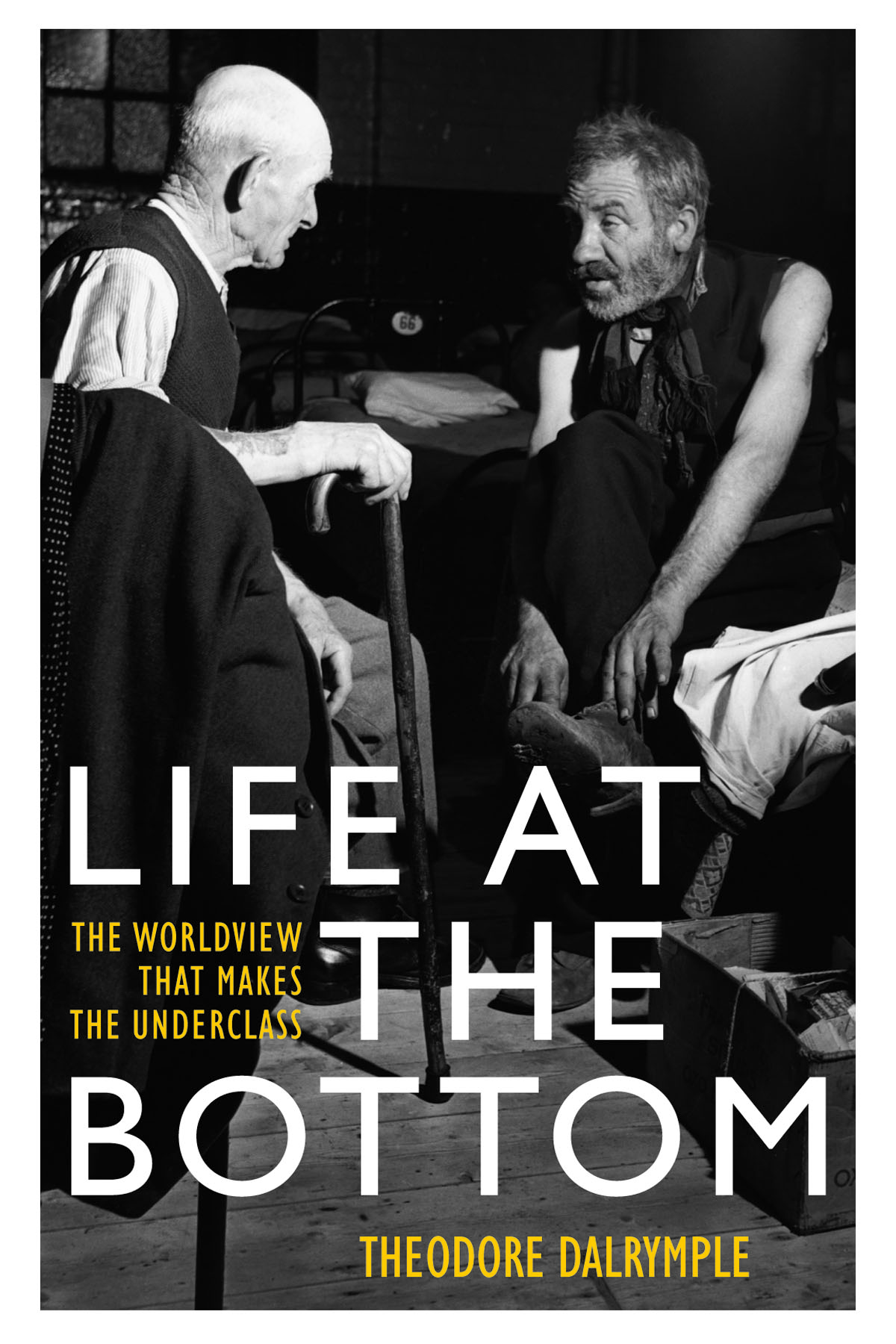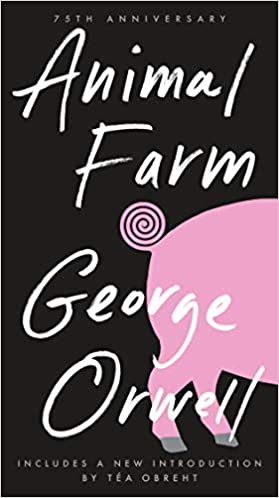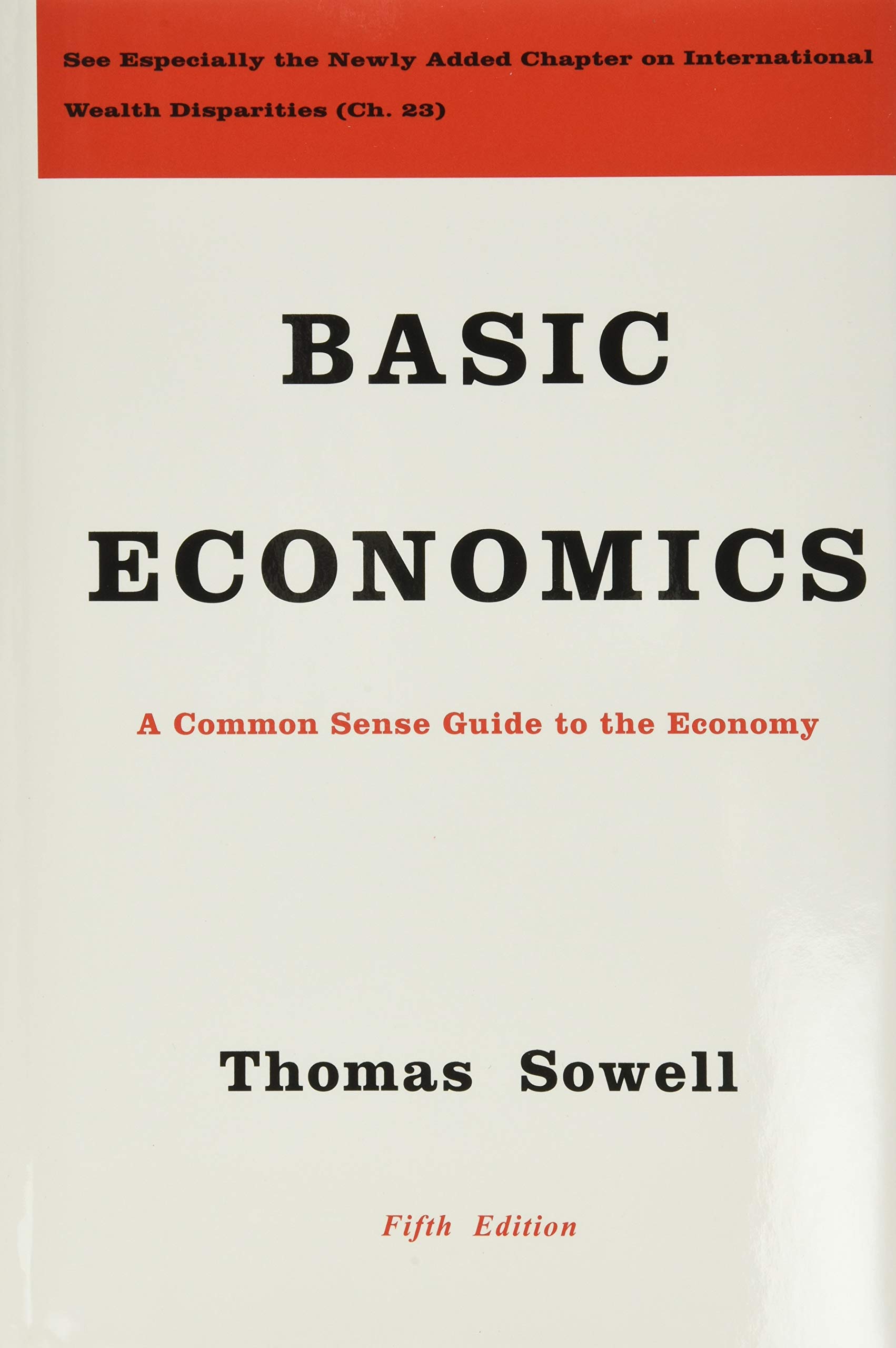 Life at the Bottom is written by an English psychiatrist that goes by the penname Theodore Dalrymple. His real name is Anthony Malcolm Daniels. I personally think that Anthony Daniels is a more sellable name for an author, but perhaps the name Theodore Dalrymple has some hidden meaning to the author and he desired some anonymity. The author worked for an extended period of time in hospitals and prisons working with many criminals and their victims. He documents the situations and thought processes of each of his patients. Patient of which are predominately part of Britain’s lower class. He uses his experience in working with thousands of people to look for common threads that seem to keep generations of people continuously at the bottom rung of society. The book is more a fairly coherent compilation of his notes and thoughts on his patients’ situations rather than a non-fiction novel.
Life at the Bottom is written by an English psychiatrist that goes by the penname Theodore Dalrymple. His real name is Anthony Malcolm Daniels. I personally think that Anthony Daniels is a more sellable name for an author, but perhaps the name Theodore Dalrymple has some hidden meaning to the author and he desired some anonymity. The author worked for an extended period of time in hospitals and prisons working with many criminals and their victims. He documents the situations and thought processes of each of his patients. Patient of which are predominately part of Britain’s lower class. He uses his experience in working with thousands of people to look for common threads that seem to keep generations of people continuously at the bottom rung of society. The book is more a fairly coherent compilation of his notes and thoughts on his patients’ situations rather than a non-fiction novel.
Many of the experiences the author describes are quite horrific. They contain serial child abuse, suicide, and long-term domestic violence. The author notes that quite often the system in place to aid the victims of these acts, often helps to propagate them as criminals are given increased benefits in social programs as their behavior declines. People who are trying to better themselves, in many cases, are given reduced benefits because they have worked and acquired more resources thereby making themselves ineligible for further help . I found myself having difficultly sleeping when I read some of the sections too close to bedtime. There are many stabbings, beatings, and overdoses described in the book. If this were fiction, it would be easier to accept, but knowing that everything has occurred, and likely continues to occur, has made it far worse.
The vast amount of data that the author has unique access to make the book very interesting. It would have been desirable, however, if he had presented it without too much opinion on what the data imply. I believe the reader, in many cases, would come to the same conclusion as the author, but not necessarily. I would, as I believe most readers would, prefer to be presented with the facts and draw my own conclusions. The author appears frustrated with the situation. I guess if I put myself in his shoes, it is difficult to show up for work every day for decades and see the same preventable problems manifesting themselves over and over and be helpless to stop them. This very forgivable offense has definitely crept its way into this work.
The interesting thing the author does show is the mindset of many of the people that are trapped in this cycle of despair. He has observed that nearly all of the violent criminals take no ownership of their actions. They all describe themselves as powerless to stop their violence and criminal activity. They view themselves as “victims”, often blaming the author for not “curing” them of their behavior or the victims of driving them to violence.
He also observed that keeping marriages intact, which was a rare observance in his cases, appeared to be one antidote to stopping the cycle. People who lived in poor conditions, but managed to keep a family together, almost always faired better in all areas than those who did not maintain relationships. He stated that these people were often immigrants who were clinging to values carried over from their home countries. They often managed to avoid cycles of domestic violence and even managed on some occasions to transcend their poverty.
Another cure that the author suggests and that I believe has the most promise is exposure. Exposure of those living in the cycle of poverty to different environments. Having a city kid visit a farm or a museum or having them meet a previously impoverished person who has become a doctor or community leader has appeared to be helpful. Those who are trapped in a cycle of poverty frequently have a very limited world view. They are often not exposed to anything much beyond the often dismal neighborhood that they spend their lives in. Just having the knowledge that there are other ways of living, and witnessing it, seems to have an impact. It is very clear to the author that social programs that just dole out benefits are, in many cases, doing more harm than good. There needs to be more incentive to promote a change in lifestyle and a pursuit of personal improvement. There needs to be a push to destigmatize education and self-improvement in the lower class and there needs to be more incentive to those that embrace and pursue it in earnest and perhaps less incentive for those who pursue a life of crime to receive benefits.
The author also notes that people who come from countries without extensive social programs, but live in poverty, often do not have many of the problems he is observing. In many third world countries there are people living in conditions that are far worse than those the author observes in Great Britain, but the literacy rate is higher and the crime rate is lower. It seems as though the social programs are somehow breaking down the sense of community. In third world slums people tend to help each other more and respect each other’s property more. They know and help their neighbors more. They maintain marriages more consistently. For whatever reason, the social programs seem to remove this sense of community, desire for self-improvement, and desire to maintain relationships much better. Perhaps it has something to do with the fact that, due to social programs, everyone gets enough to eat, a roof over his or her head, and basic medical care without any effort, but those in third world countries have to go without these things or work very hard for them. There must be a way, within the confines of human nature, to help those that are deserving of it, without removing the motivation of those being helped. I am guessing that many of the things the author observes in Great Britain are true of impoverished areas of all first-world countries.
This book was very interesting and informative and I feel that I am better for having read it. I may find myself pondering answers and potential outcomes for a long time to come. Someone needs to properly address these situations if society is going to advance. It is not reasonable to expect society as a whole to rise above a certain level when there are those who still live in reprehensible circumstances. I feel that to some extent, we, as a society, are only as good as the least of those among us.



